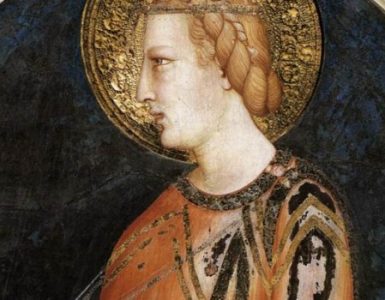In an era where secularism and relativism dominate cultural and educational landscapes, the mission to renew Catholic educational institutions has never been more critical. Tom Carroll, the former Superintendent in the Archdiocese of Boston, has been at the forefront of this mission. His work, now extending beyond Boston through the Catholic Talent Project, offers a beacon of hope for the future of Catholic education in the United States.
In a recent interview, I had the opportunity to discuss with Tom the challenges facing Catholic schools, the strategies he has employed to address them, and his vision for a nationwide renewal.
The Crisis in Catholic Education
One of the most alarming trends in recent years is the exodus of young Catholics from the faith. Carroll highlighted that by the age of 18, 86% of young Catholics have left the Church—with many drifting away as early as 13. This statistic is particularly disheartening given that many of these young people attended Catholic schools.
Tom Carroll identifies this crisis of faith as a primary motivator for his work. “The Church has no future if nobody who’s young believes in what we’re teaching,” Carroll stated, underscoring the urgent need for a renewed focus on evangelization within Catholic schools.
Carroll’s tenure in Boston revealed significant challenges at the onset, including a lack of commitment to evangelization among some educators. He recounted how many school leaders were uncomfortable with the idea of actively evangelizing the faithful and proclaiming the Church’s teachings, viewing it as too aggressive or “pushy.” This reluctance, coupled with the pervasive influence of secular educational philosophies, has contributed to the erosion of Catholic identity in many schools.
Carroll’s solution was a radical overhaul of leadership, replacing 75% of parochial school leaders with individuals deeply committed to the Church’s mission.
Evangelization and Faith Formation
At the heart of Carroll’s approach is the belief that a well-rounded Catholic education must be fundamentally different from its secular counterparts. “You can’t honestly teach art, music, architecture, philosophy, or science without reference to the Catholic Church,” he argued. For Carroll, evangelization must be an intentional, daily effort integrated into every aspect of the school experience—not just confined to religion classes.
One of the most significant changes Carroll implemented in Boston was the recruitment of educators who are not only competent teachers but also faithful witnesses to the Catholic faith. He spent considerable time traveling to colleges recommended by the Cardinal Newman Society, seeking out young Catholics who are intellectually curious, committed to their faith, and capable of engaging students meaningfully. This strategy has proven successful in Boston, where the focus on evangelization has led to what some have called a “renaissance” in Catholic education.
A Vision for National Renewal
Now, through the Catholic Talent Project, Carroll aims to scale the successful model from Boston to dioceses across the country. Partnering with Archbishop Salvatore Cordileone in San Francisco, the project seeks to create a national network of faithful Catholic educators and leaders. This initiative is driven by an open-source approach—not for the sake of profit, but for the goal of sharing successful practices and strategies with other dioceses. Saving souls and making a lasting impact are being prioritized rather than centralization and control over this new model and approach.
The Catholic Talent Project is not just about filling vacancies in Catholic schools; it’s also about forming the next generation of Catholic leaders. Carroll envisions a “talent pyramid” where young teachers are identified, mentored, and eventually prepared for leadership roles within the Catholic educational system. By doing so, the project aims to ensure that Catholic schools are led by individuals who fully embrace the Church’s mission of evangelization.
The Role of Catholic Social Teaching
In my opinion, Carroll’s educational philosophy bears a significant resemblance to the principle of subsidiarity, a cornerstone of Catholic Social Teaching. This principle emphasizes starting with the local communities and schools to build outwards, rather than simply imposing solutions from the top down—either from regulation or bureaucracy.
Carroll contrasts this new approach with the consumer-oriented model prevalent in secular education, which often focuses more on producing workers than on forming well-rounded individuals. If we’re to rebuild the trust in our educational institutions, the community must come first and foremost; and if these schools focus on forming individuals, giving them meaning and purpose as they enter the modern world, a high-quality Catholic education could compete with secular schools in light of its own merits and successes.
Carroll’s vision for a Catholic education is deeply rooted in the Church’s intellectual tradition. He advocates for integrating Catholic teachings across the curriculum, ensuring that students receive a holistic education that prepares them not just for careers, but for lives of faith and service. This approach, he argues, is essential for countering the secular ideologies that dominate public education and for helping students develop a strong Catholic identity.
A Call to Action for Catholic Educators and Parents
For Catholic educators and parents who may feel disheartened by the current state of Catholic education in some areas, Carroll offers a message of hope. He encourages them to remain steadfast in their faith and to actively participate in the renewal of Catholic schools. “The future of the Church is really bright,” Carroll says, citing the increasing number of young, faithful Catholics who are stepping up to lead the next generation.
His advice is clear: a proper Catholic educational model must be intentional in its evangelization efforts, integrating faith into every aspect of the school experience; not just “religion class” which puts God into a little corner of a traditionally secular education.
Parents must also be vigilant in ensuring that their children are receiving an education that is truly Catholic, one that prepares them for both the challenges of the modern world and the promise of eternal life. Catholic Schools, likewise, must be able to be held accountable for what they are teaching, and if it is following the faith they claim to follow.
Conclusion
The renewal of Catholic education is not just about preserving traditions; it’s about forming future leaders who can navigate the complexities of the modern world with a strong Catholic identity. Tom Carroll’s work offers a model for how this renewal can be achieved. By focusing on evangelization, recruiting faithful educators, and integrating Catholic teachings across the curriculum, Carroll is helping to build a foundation for the future of the Church in the United States.
As we look to the future, it is clear that the success of Catholic schools will depend on the commitment of the entire Catholic community—parents, educators, and leaders alike. Together, we can ensure that Catholic educators remain true to their mission, forming not just minds, but hearts and souls, for generations to come.
Photo by Fauzan Saari on Unsplash










